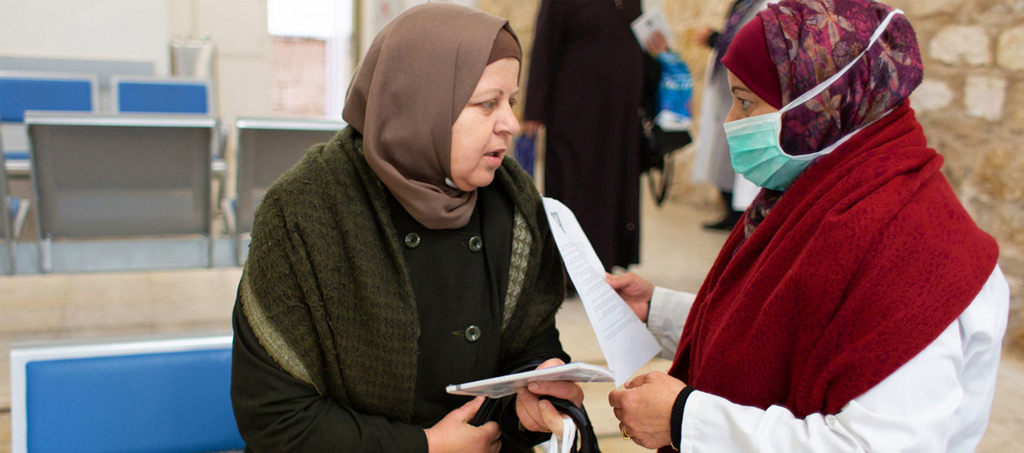WHO stresses the need for quick action amid reports of fresh COVID-19 outbreaks
With several countries experiencing fresh COVID-19 outbreaks after periods of little or no transmission, the UN World Health Organization (WHO) on Friday highlighted the need for authorities to be able to move quickly to prevent further spread of the disease.
These nations provide a cautionary tale because they show how “progress does not mean victory”, said WHO chief Tedros Adhanom Ghebreyesus in his latest update on the crisis.
“That’s why it’s vital that countries are able to quickly identify and prevent clusters, to prevent community transmission and the possibility of new restrictions,” he told journalists.
Cases top 22 million
Globally, there are now more than 22 million cases of COVID-19, and 780,000 deaths. Meanwhile, the number of people requiring hospitalization remains high, the WHO chief reported.
“No country can just ride this out until we have a vaccine,” he warned.
“A vaccine will be a vital tool, and we hope that we will have one as soon as possible. But there’s no guarantee that we will, and even if we do have a vaccine, it won’t end the pandemic on its own.”
Mr. Tedros underlined WHO’s commitment to countries as they work towards the safe re-opening of their economies, societies, schools and businesses.
A tale of two pandemics
The WHO chief also expressed hope that the COVID-19 pandemic will be defeated in under two years, or less time than it took to end the Spanish Flu pandemic, through global solidarity and the use of vaccines.
Mr. Tedros was responding to a journalist’s question about similarities between the two crises.
The 1918 influenza pandemic lasted from February 1918 to April 2020.
Mr. Tedros pointed out that while the “disadvantage” of globalization means the new coronavirus can spread faster, people today have the “advantage” of technology and knowledge.
“So, we hope to finish this pandemic before less than two years, especially if we can pool our efforts together, and with national unity, global solidarity – that’s really key – with utilizing the available tools to the maximum and hoping that we can have additional tools like vaccines, I think we can finish it in a shorter time than the 1918 flu,” he said.
PPE-related corruption is ‘murder’
Corruption that deprives frontline health workers of personal protective equipment (PPE) is “murder”, Dr. Tedros unequivocally stated on Friday.
He was responding to a journalist’s question about health professionals in some nations going on strike because they lack appropriate PPE, amid reports of government corruption related to COVID-19 funds.
“Any level of corruption is unacceptable, or any type of corruption is unacceptable. However, corruption related to PPE, lifesaving, for me it’s actually murder,” he said.
“Because if health workers work without PPE, we are risking their lives. And that also risks the lives of the people they serve. So, it’s criminal, and it’s a murder, and it has to stop if it is happening anywhere.”
Speaking earlier in the briefing, WHO’s Dr. Michael Ryan highlighted how the pandemic has shown both the best and worst of humanity.
“Certainly, corruption is something that is not new to this world. And at this point, it’s really, really, important that governments govern and that we see very clear, transparent action by governments,” he said.
While authorities must ensure that health workers are properly equipped and receive their salaries, protests should not occur at the expense of the health and wellbeing of patients, said Dr. Ryan, Executive Director of WHO’s Health Emergencies Programme.
Upcoming guidance on masks for children
WHO and the UN Children’s Fund, UNICEF, are set to issue guidance on the use of masks by children.
The UN agencies will provide advice for public health officials, child health professionals, educators and others about making the decision on where and when masks should be worn.
Dr. Maria van Kerkhove, an epidemiologist and WHO lead on COVID-19, said research continues into how the disease affects children as understanding about virus transmission among this population is limited.
Although children of all ages can be infected, the majority tend to develop mild disease. However, children have developed severe disease, and some have died.
DRC Ebola outbreak ‘concerning’
WHO is urging support for the Democratic Republic of the Congo (DRC), where the Government is seeking $40 million to fight an Ebola outbreak which emerged in Equateur province in early June.
Ebola has spread to 11 of the 17 health zones of the province, located in the west of the country. As of Thursday, there were 100 cases and 43 deaths.
“With 100 Ebola cases in less than 100 days, the outbreak in Equateur Province is evolving in a concerning way,” said Dr. Matshidiso Moeti, WHO Regional Director for Africa.
“The virus is spreading across a wide and rugged terrain which requires costly interventions and with COVID-19 draining resources and attention, it is hard to scale-up operations.”
WHO said a strike by health workers has further complicated the situation, as it has affected vaccinations, safe burials and other activities.
The UN agency and its partners continue to support the DRC Government, including by helping to screen more than 640,000 people for the disease.



